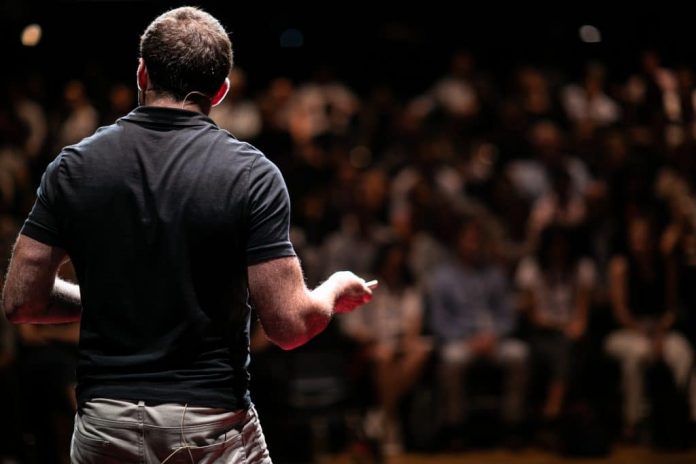Every once in a while, you hear a question you can’t get out of your head.
A while back, I was listening to Sean Morgan’s interview with Ashley Wooldridge from Christ Church of the Valley. It was a great conversation about succession, and at one point, Ashley dropped this question:
Why is the pastor the product?
The question hit me like a ton of bricks. Ashley raised the question in the context of succession (that’s why it’s so hard to replace popular pastors), but the implications of making the pastor the product go in so many directions.
If you look at how many churches —not just megachurches, but many small and large churches—functionally operate, the pastor is at the center of the church.
So, why is the pastor all too often the ‘product’ a church offers?
If you look at how many churches —not just megachurches, but many small and large churches—functionally operate, the pastor is at the center of the church.
So, why is the pastor all too often the ‘product’ a church offers?
Sure, some profile for a pastor is inevitable—things really do rise and fall on leadership. But leadership is more than just the leader.
In this post, I’ll look at five reasons why intentionally making the pastor the product is an idea fraught with challenges and then explore some alternatives.Hey Church, why have we made the Pastor the product?CLICK TO TWEET
5 Reasons Making the Pastor the Product Sets Everyone Up To Fail
So, let’s be clear on what this post isn’t about.
There is an inevitable and healthy pull to the forefront every leader faces. After all, leadership rightly demands the senior leader’s full heart, involvement, and to some extent, their profile to lead effectively.
But making the pastor the product by intensifying the spotlight, chasing celebrity, and elevating the pastor to become the principal asset of the church is a risky business.
I wrestled with this for years. When I led Connexus Church, people kept calling it “Carey’s church,” which always bothered me. And they told me, “If you leave, it’s probably going to fall apart.”
On the one hand, I hated that and actively resisted it. On the other hand, I realize the health and growth of the church were, to some extent, heavily dependent on me.
Ultimately, I built teams and systems that I hoped would keep the church growing for many years after I left. But I had no idea if it would work.
Exiting the Lead Pastor role in 2015, I’m thrilled to say the church grew to its largest and most effective era after I left under new leadership. And as much as that might be a slight blow to a fragile ego, that’s exactly what should happen when a Founding Pastor steps back.
But still, the challenge is real.
There is an inevitability (when you’re the leader with the microphone) to being the organization’s center.
Before we get to solutions, here are five reasons why making the pastor the product can set everyone up to fail.
1. The Church—Not the Pastor—Is Supposed to be the Body of Christ
Theologically, the church—not the Pastor—is supposed to be the body of Christ.
While it’s easy to pick on megachurches for their highly visible pastors, small churches are often more guilty of this sin than large churches.
Theologically, the church—not the Pastor—is supposed to be the body of Christ.
While it’s easy to pick on megachurches for their highly visible pastors, small churches are often more guilty of this sin than large churches.
Theologically, the church—not the Pastor—is supposed to be the body of Christ.
While it’s easy to pick on megachurches for their highly visible pastors, small churches are often more guilty of this sin than large churches.
Why?While it’s easy to pick on megachurches for their highly visible pastors, small churches are often more guilty of making the pastor the center of church life than large churches are.CLICK TO TWEET
Because in small churches, the expectation is that the pastor will do literally everything, from preaching and teaching to committee and team leadership, to pastoral care and leading Bible study, to community outreach. And functionally, that’s what many small church pastors do.
Rather than giving the body of Christ the responsibility for ministry, too many pastors usurp that and claim it for themselves. Members don’t lead because they often load up far too many expectations on pastors, expecting them to be the church while they merely attend or do simpler tasks serving.
And yet, as any Christian would affirm, ministry belongs to the body of Christ.
Protestants have criticized Roman Catholic priests for usurping the ministry of the body of Christ, only to do exactly the same thing through the back door as the pastor ascended to the center of congregational life.Protestants have criticized Roman Catholic priests for usurping the ministry of the body of Christ, only to do exactly the same thing through the back door as the pastor ascended to the center of congregational life.CLICK TO TWEET










